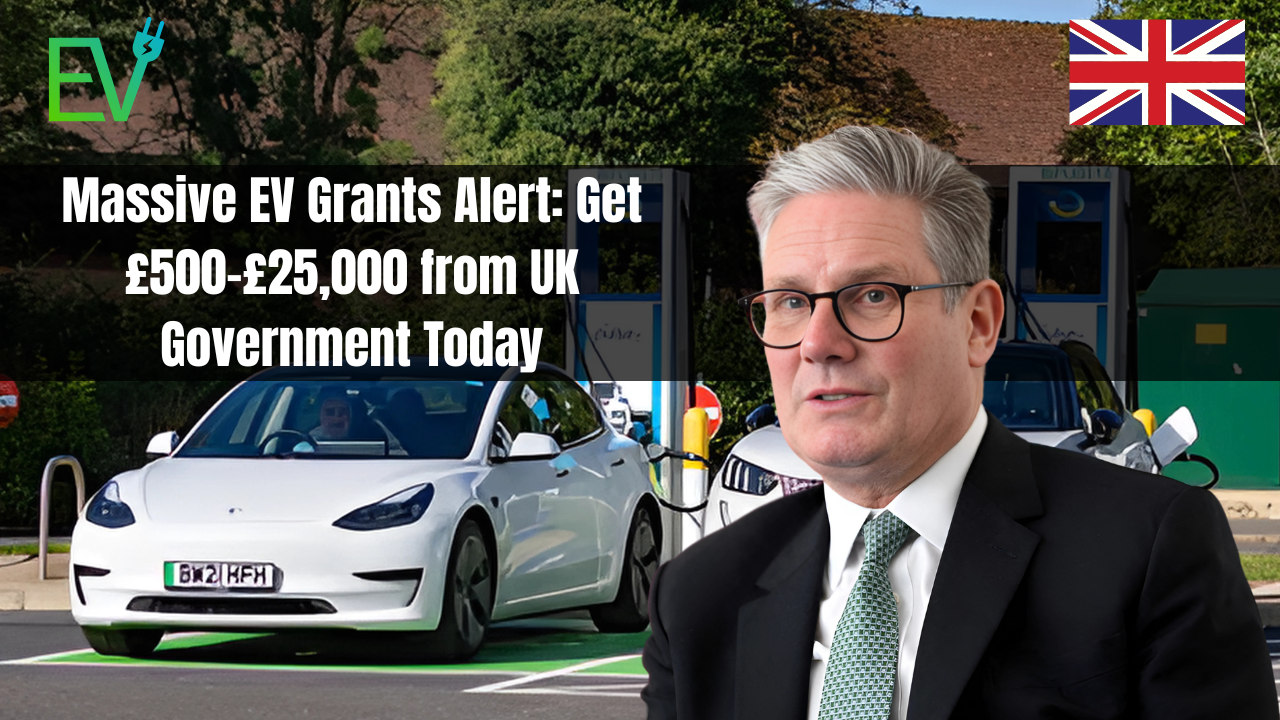The transition to electric vehicles (EVs) is a key part of the UK’s strategy to reduce carbon emissions and combat climate change. To encourage the adoption of electric cars, the UK government, through the Office for Zero Emission Vehicles (OZEV), offers a range of grants and incentives for individuals, businesses, and local authorities. This article explores the main government grants available, eligibility criteria, how to apply, and the benefits of each scheme.
Overview of UK Government EV Grants
The UK government has established several grant schemes to support the purchase of electric vehicles and the installation of charging infrastructure. These grants are managed by OZEV and are designed to make EV ownership more accessible and affordable for everyone, from private car owners to businesses and local authorities.
Key Government EV Grant Schemes
The main government grants currently available are:
-
Electric Vehicle Homecharge Scheme (EVHS)
-
Workplace Charging Scheme (WCS)
-
On-street Residential Chargepoint Scheme (ORCS)
-
Grants for Wheelchair Accessible Vehicles, Mopeds, Motorcycles, Vans, and Trucks
Each scheme targets a different segment of the market, ensuring that support is available for a wide range of users.
Electric Vehicle Homecharge Scheme (EVHS)
What is EVHS?
The EVHS provides a grant of up to £350 towards the cost of installing a home electric vehicle charge point. This grant is available to homeowners who live in flats and people in rental accommodation (flats and single-use properties), provided they have off-street parking.
Who is Eligible?
-
Individuals who have bought or leased a new or second-hand eligible electric vehicle on or after 1 October 2016.
-
Company car drivers assigned an eligible EV for at least six months.
-
Individuals who lease an eligible vehicle for at least six months.
-
Employees with a salary-sacrifice scheme for an eligible EV.
-
Individuals named as the primary user of an eligible electric vehicle by their employer for at least six months.
Who Cannot Claim?
-
Drivers whose cars are not on the eligible list or are registered outside the UK.
-
Individuals who are not the main driver.
-
Those who lease or drive an EV for less than six months.
-
People borrowing an EV from friends or family.
-
Car club members with only shared access to an EV.
-
Individuals wanting a second charger without a second eligible vehicle.
How to Claim?
An authorised installer will claim 75% of the cost (up to £350) on your behalf before installation. You pay the remaining cost to the installer.
How Many Chargers Can You Get?
You can claim for a maximum of two eligible electric cars if all terms and conditions are met. The installer must consult the local Distribution Network Operator before installing a second charger.
Is a Three-Pin Socket Eligible?
No, three-pin socket chargers are not eligible for the grant.
Workplace Charging Scheme (WCS)
What is WCS?
The WCS is a voucher-based scheme for businesses to help with the upfront cost of installing EV charging points at workplaces. It covers up to 75% of the cost, with a maximum of £350 per socket, for up to 40 sockets.
Who is Eligible?
-
Businesses with a Companies House Reference Number.
-
Owners of business premises or those with landlord’s permission.
-
Must use an authorised EV charger installer.
How to Apply?
Apply online for the WCS. Once approved, a voucher is generated, valid for four months. The installer completes the work and submits a claim on the WCS portal.
Do You Need EVs to Qualify?
No. You only need to declare a need for EV charging infrastructure or an intention to encourage EV uptake among staff or fleet.
On-street Residential Chargepoint Scheme (ORCS)
What is ORCS?
ORCS provides funding for local authorities to install on-street residential electric car chargers, benefiting those without off-street parking.
How Does it Work?
The Energy Saving Trust (EST) manages the scheme for OZEV. Funding is allocated on a first-come, first-served basis.
Grants for Wheelchair Accessible Vehicles, Mopeds, Motorcycles, Vans, and Trucks
What Discounts are Available?
| Vehicle Type | Discount (Up to) | Cap Amount |
|---|---|---|
| Wheelchair Accessible Vehicle | 35% | £2,500 |
| Moped | 35% | £150 |
| Motorcycle | 35% | £500 |
| Small Van | 35% | £2,500 |
| Large Van | 20% | £5,000 |
| Small Truck | 20% | £16,000 |
| Large Truck | 20% | £25,000 |
These grants are available through car manufacturers and dealerships, who pass the discount to customers. Vehicles must be on the government’s approved list.
Other Benefits of Electric Vehicles
-
Road Tax: EVs are exempt from road tax.
-
Company Car Tax: Lower rates for company EV drivers.
How to Find Out More
For more information on home car charger funding, contact your installer or OZEV at [email protected].
Frequently Asked Questions (FAQs)
Q: Can I get a grant for a three-pin socket EV home charger?
A: No, three-pin socket chargers are not eligible for the grant.
Q: Do my business or staff have to have EVs to get the WCS grant?
A: No, you only need to declare a need or intention to encourage EV uptake.
Q: How many EV home chargers can I get a grant for?
A: You can claim for a maximum of two eligible electric cars if all terms and conditions are met.

